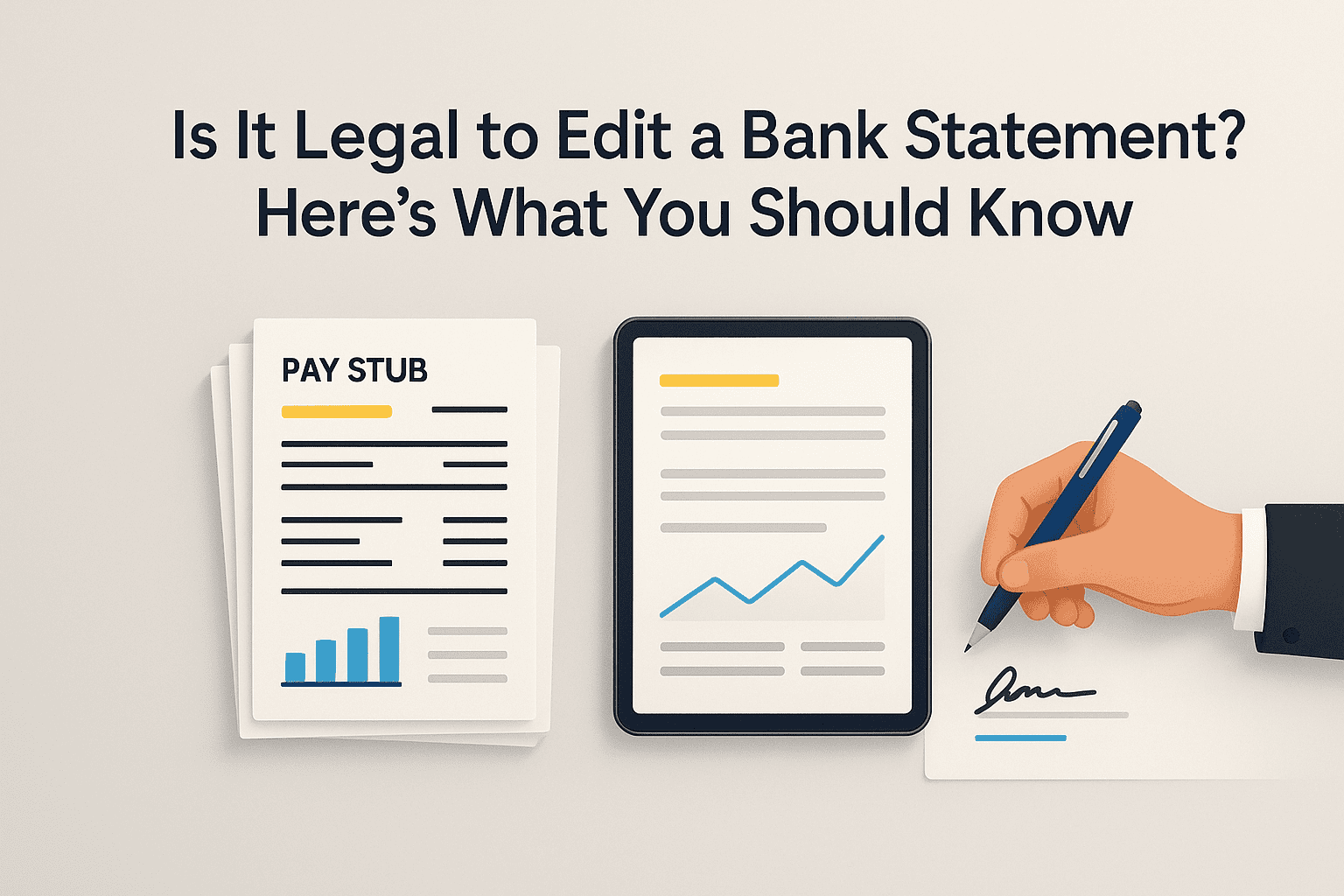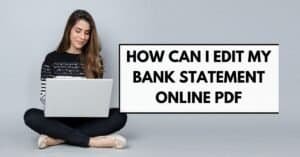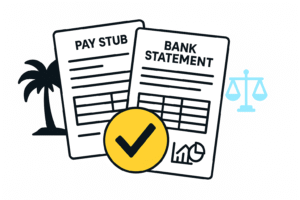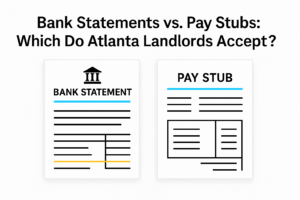Table of Contents:
- Introduction
- Defining Bank Statement Editing Clearly
- Legal Insights: Understanding the Law
- Legitimate Reasons to Edit a Bank Statement
- Real-world Consequences of Illegal Bank Statement Editing
- How FinancialDocsProvider.com Keeps Your Edits Compliant
- Best Practices to Stay Legal and Compliant
- Conclusion
- Call-to-Action
- Frequently Asked Questions (FAQs)
Introduction
Editing a bank statement is a topic fraught with misconceptions and concerns, particularly for renters, self-employed individuals, and those seeking loans. People often face uncertainty about whether adjusting their financial documents could land them in trouble or if certain edits are legally permissible. FinancialDocsProvider.com understands this confusion and offers professional assistance, ensuring clients remain within legal boundaries while clearly and professionally presenting their financial information.
Defining Bank Statement Editing Clearly
Understanding what constitutes editing a bank statement is crucial. Legal edits typically include:
- Rectifying typographical errors or inaccuracies.
- Redacting sensitive personal information.
- Adjusting formatting to improve clarity and readability.
Conversely, fraudulent editing encompasses:
- Altering transaction details or amounts to mislead.
- Falsifying financial balances or income data.
- Misrepresenting financial status to third parties.
Grasping this distinction is key to staying on the right side of the law.
Legal Insights: Understanding the Law
Legal standards differ slightly across regions but share common principles regarding intent and transparency:
United States
U.S. law considers intent pivotal. Legitimate editing for accuracy or privacy without deceptive intent is usually legal. However, alterations meant to mislead can incur severe criminal penalties, including charges of fraud or forgery.
United Kingdom
UK laws clearly define fraudulent financial alterations as illegal. Legitimate editing practices require transparency and honesty, particularly when presenting documents to third parties like landlords or banks.
Canada
Canadian law aligns closely with the U.S. and UK, emphasizing transparency and intent. Edits must be truthful, clear, and non-misleading. Deceptive alterations can lead to legal prosecution.
Common Legal Principles
Across the U.S., UK, and Canada, honesty, transparency, and accuracy remain essential for legal compliance when editing financial documents.
Legitimate Reasons to Edit a Bank Statement

Legitimate scenarios include:
- Rental Applications: Clarifying income streams to satisfy landlord requirements.
- Car Loans: Presenting organized and clear financial details for loan approvals.
- Small Business (SBA) Loans: Submitting neatly structured financial records essential for business funding.
- Self-employed Verification: Ensuring comprehensible and professional presentation of income and expenses.
These edits facilitate smoother approvals and clearer communication without breaking laws.
Real-world Consequences of Illegal Bank Statement Editing
Fraudulent edits can have serious implications:
- Criminal Charges: Fraud or forgery charges, potentially resulting in fines or imprisonment.
- Financial Damage: Credit rating damage and decreased trustworthiness with financial institutions.
- Reputational Harm: Difficulty obtaining future financial services due to a tarnished reputation.
Real-life cases include individuals facing eviction, lawsuits, and credit denials due to falsified financial statements.
How FinancialDocsProvider Keeps Your Edits Compliant
FinancialDocsProvider! adheres to strict ethical standards:
- Ethical Process: We carefully assess client needs, ensuring edits maintain full legal compliance.
- Transparent Communication: Clearly explaining permissible edits, ensuring no ambiguity about legal boundaries.
- Professional Integrity: Commitment to honesty and professional ethics in every document edit.
Our practices ensure that all edits pass legal scrutiny while meeting client needs.
Best Practices to Stay Legal and Compliant
Adopting safe practices when editing bank statements includes:
- Clearly marking all edits transparently.
- Maintaining original, unedited copies for reference.
- Communicating openly with financial institutions and other third parties about edits made.
- Consulting professional editing services to avoid inadvertent illegal alterations.
These strategies safeguard against legal issues and reinforce credibility.
Conclusion
Understanding the legality of editing bank statements is essential. Utilizing professional services like FinancialDocsProvider.com ensures all edits remain transparent, accurate, and legally compliant, helping avoid severe legal repercussions and protecting your financial reputation.
Call-to-Action
Need accurate, reliable financial documents fast? Contact FinancialDocsProvider.com now.
Frequently Asked Questions (FAQs)
Can edited bank statements be traced or verified?
Yes, verification processes used by financial institutions and landlords can detect fraudulent edits. Honest, transparent edits significantly minimize detection risks.
What exactly makes a bank statement edit fraudulent?
Edits meant to misrepresent financial facts, such as altering transaction amounts or income data, constitute fraud and carry serious penalties.
Are minor edits like removing addresses or account numbers legal?
Yes, removing sensitive personal information without changing financial data or misrepresenting facts is typically legal and often encouraged for privacy protection.
How can I prove my bank statements are authentic?
Providing verification directly through your financial institution or certified third-party services ensures authenticity and credibility.
Why should I hire a professional service to edit my bank statements?
A professional service ensures that edits remain compliant, transparent, and ethical, protecting you from inadvertent legal risks while maintaining document credibility.









Add comment